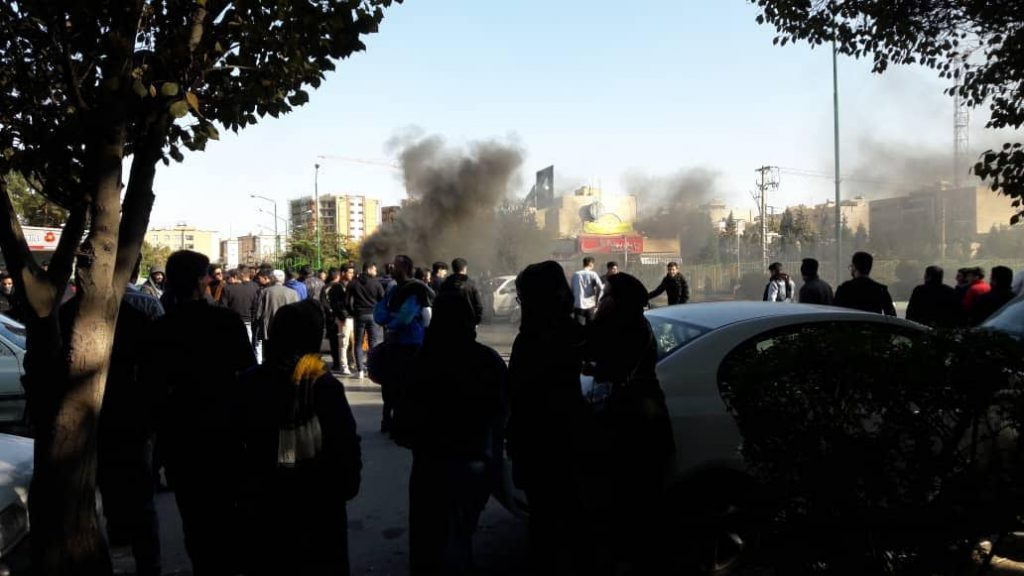
Isfahan November 2019 protests. Ph.Credit: Commons Wikimedia
When Iran started injecting gas in the Fordow facility on 6 November as part of a step-by-step plan to move away from the landmark nuclear deal, few were expecting the major nation-wide protests 9 days after. At first glance, this seems a success of the US ‘maximum pressure’ campaign. The US policy is banking heavily on the assumption that the Islamic Republic’s sanction-induced economic failure will lead to US-favoured political changes transforming Iran into what Mike Pompeo calls a “normal behaving nation”. However, although protests are signs of forthcoming political changes, it is highly uncertain if the direction of the changes is what the US seeks. Indeed, for number of reasons, the post-protest security changes will be only the more defiant version of Iran’s past security policies.
The November protests demonstrated how the social context surrounding economic grievances and the government’s miscalculations and excessive use of force might activate spirals of violence inside Iran. Such violent outbreaks provide no clear pathway to creating democratic political change, particularly with the lack of a publicly supported united opposition leadership. Instead the outbreaks of violence give rise to a failed state, amplify the risk of civil war and contribute to the emergence of a new hotspot for regional destabilisation.
The deterioration of internal security and chronic violent confrontation between the government and the protesters are likely to make the Islamic Republic’s current approach to security more assertive and offensive. The continual potential for violence feeds both ‘maximum suppression’ and ‘maximum resistance’ policy and will further reinforce ‘threat balancing’ discourses among Iranian leadership as the main remaining approach to guarantee the state’s survival. Both of these trends, potential of future hike in violence and more offensive security policy, are far from the kind of political changes that the US administration is planning on.
[…]



